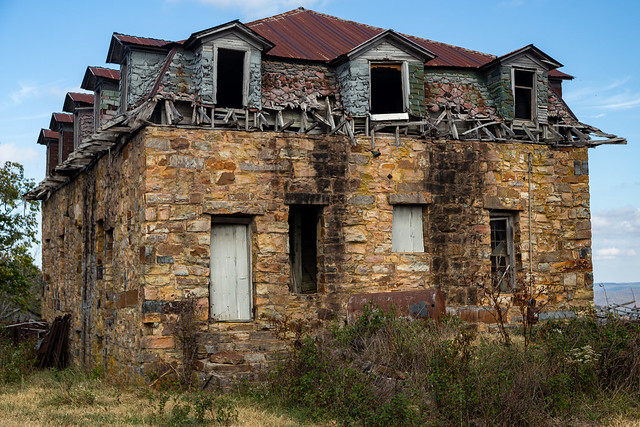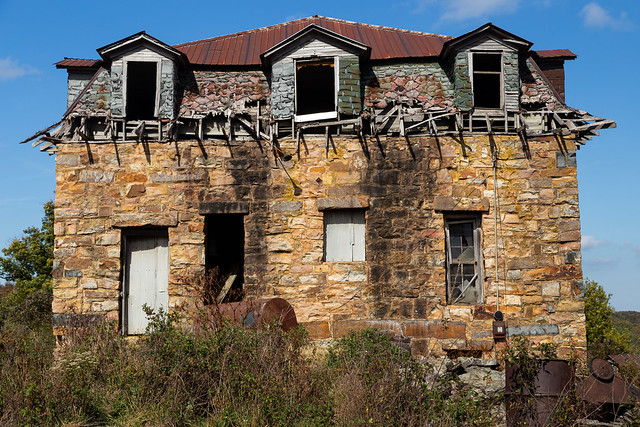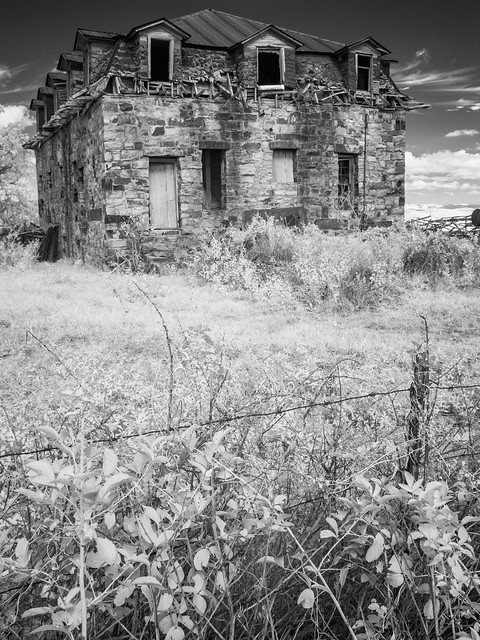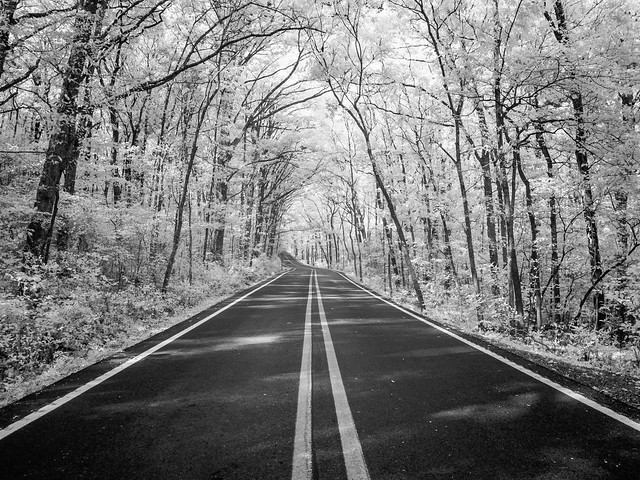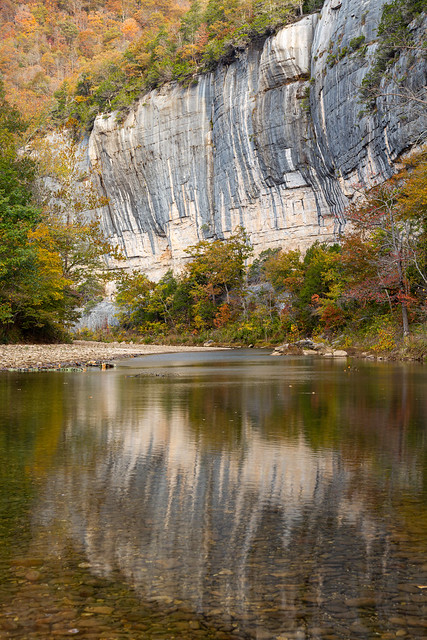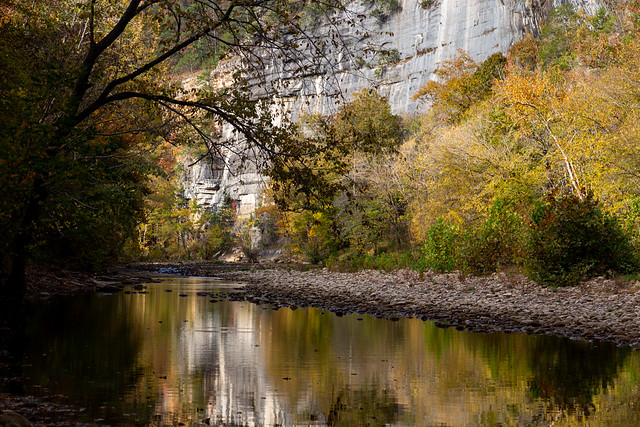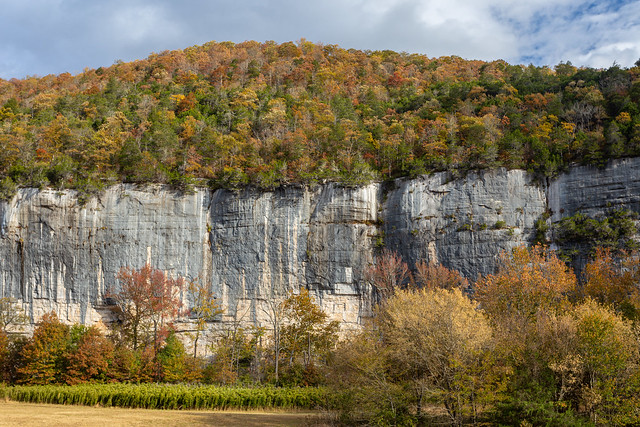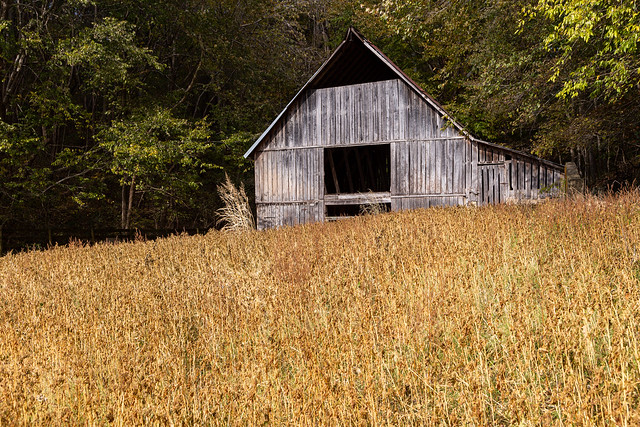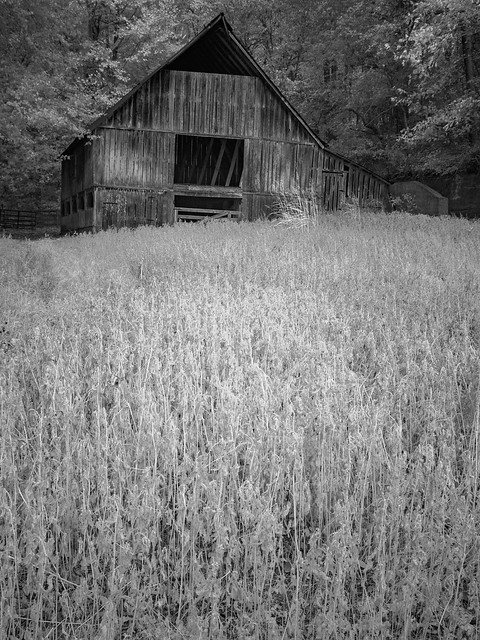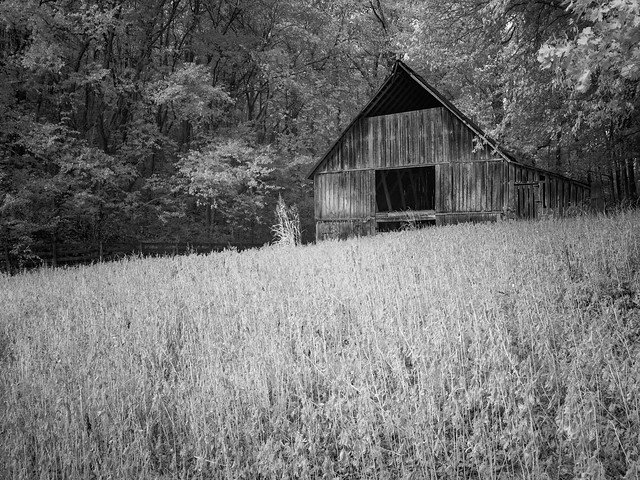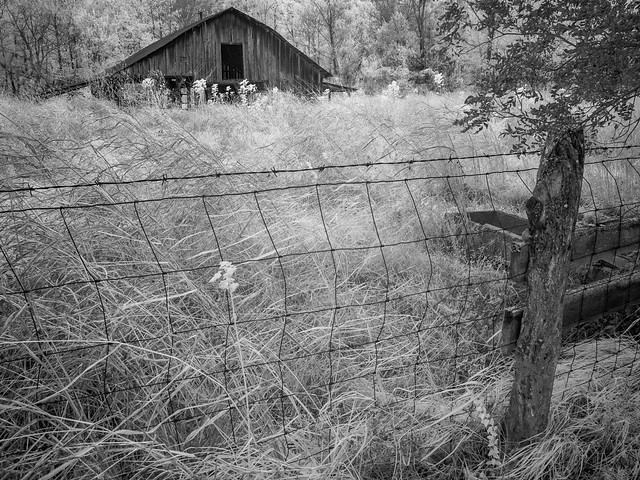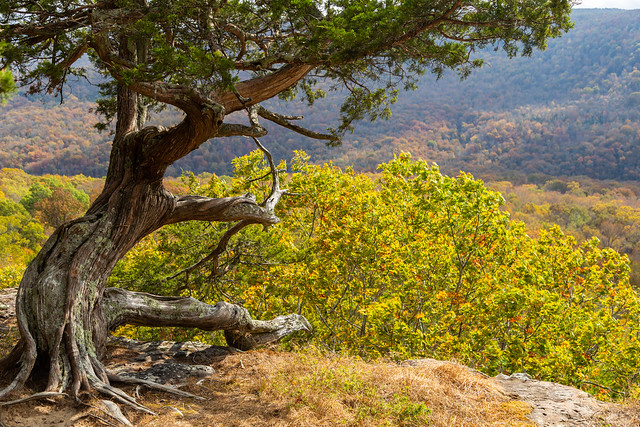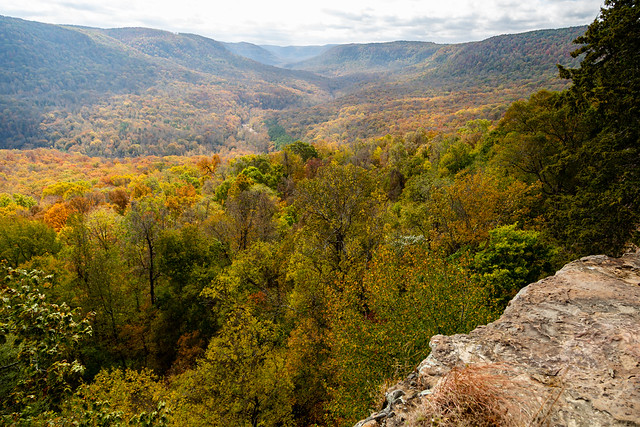Stuttgart is a neat city. It is one of the two county seats of Arkansas County (the other is DeWitt), and it is widely known for rice and ducks. As I drove through town, I spotted this neat old home. Someone has mowed the grass, but the house does look abandoned.
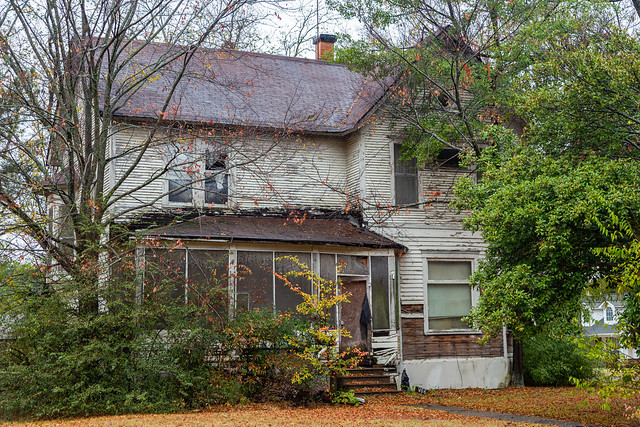
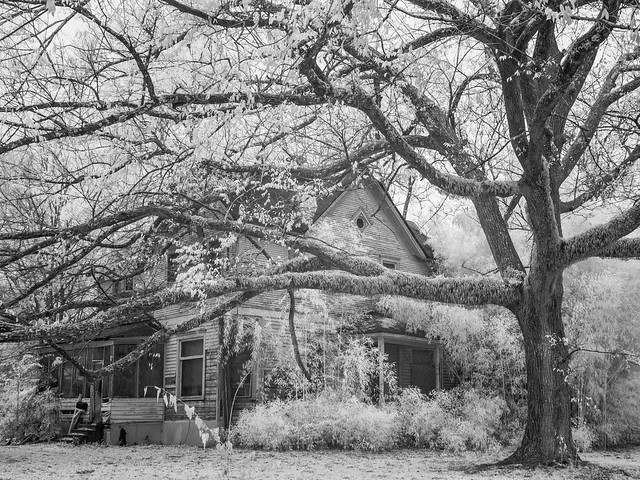

I drove down Main Street and made a little visit to the old Riceland Hotel. The hotel was built in 1923, and was once the center of social life in town. When it was open, the hotel boasted visits from celebrities like Ernest Hemingway, Joseph Pulitzer and Clark Gable. Unfortunately the hotel closed in 1973, and has been left all but abandoned ever since (for some pictures from inside the hotel, click HERE). On the side of the building is a bright red door, which stands out in stark contrast to the building around it.
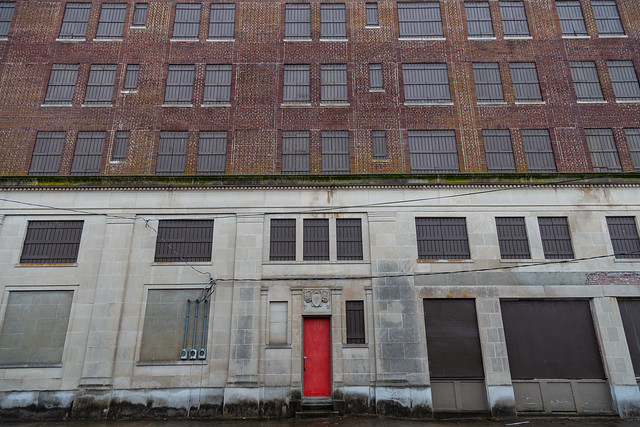
Stuttgart was settled in 1878 by German immigrants, and now has a population of about 10,000 people. It is home to Riceland Foods, which has grown to become the world's largest miller and marketer of rice.
During a break in the rain, I stopped by an old rice silo that sits just a few blocks from Main Street. It doesn't seem like it's in use anymore. Overgrown grass, that had turned a deep orange, was growing up in the disused railroad tracks that run by.


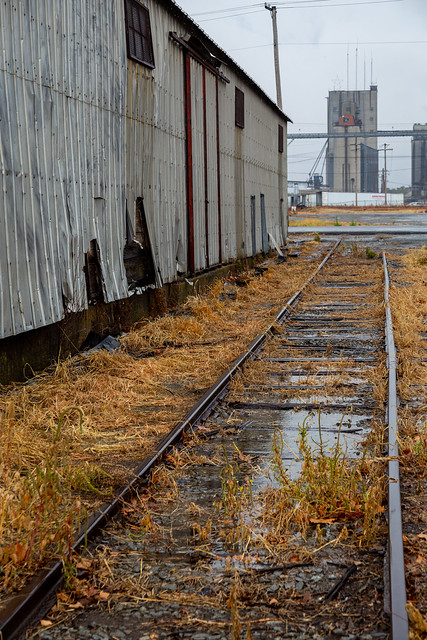
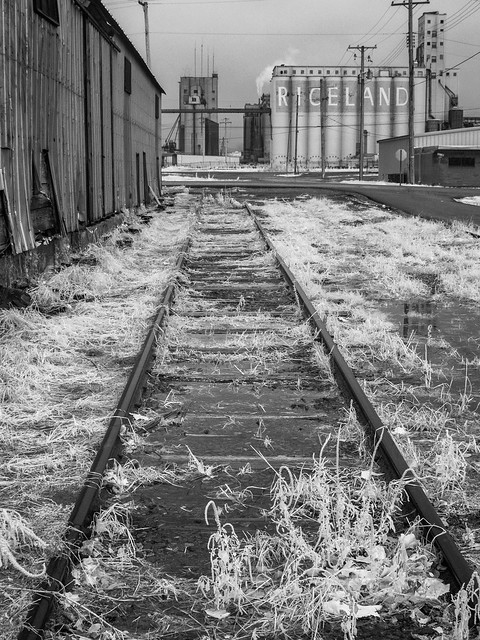
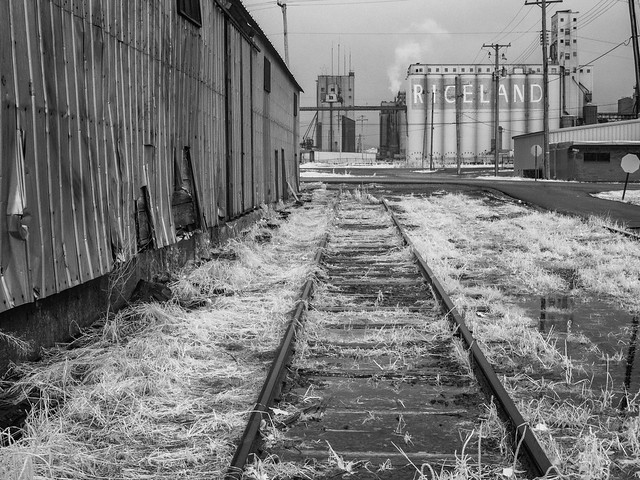
Nearby was this old home, which may also be abandoned? It had a Mickey Mouse looking out from the door, so maybe it's the Mickey Mouse Clubhouse?
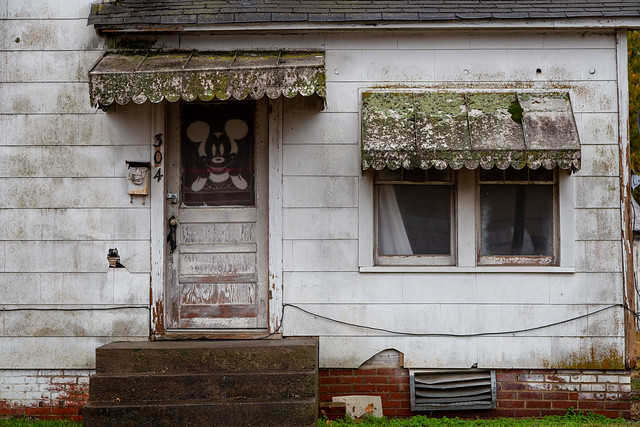
From there I stopped by the Museum of the Arkansas Grand Prairie. The museum contains over 20,000 square feet and details the history of the Stuttgart. Among the exhibits is this recreation of a church that is similar to ones built by the town's original German settlers.

On the southern edge of the city is the Rice Capitol Inc. mill, which is the oldest in Stuttgart. It looks like it's still a busy place, but this tall structure along the road looks empty and abandoned, with broken windows along the rusted sides of the building.

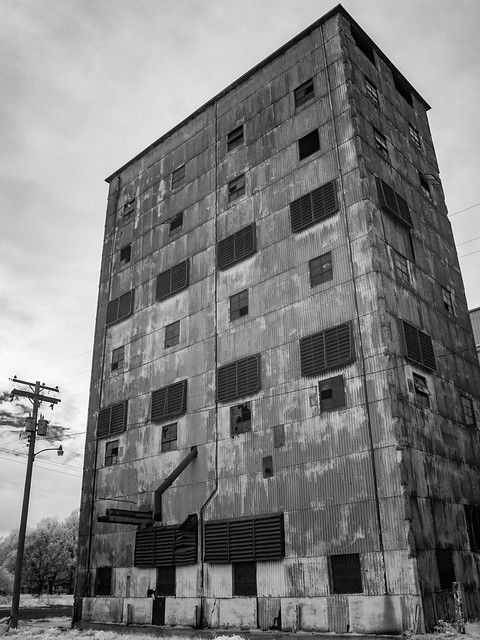

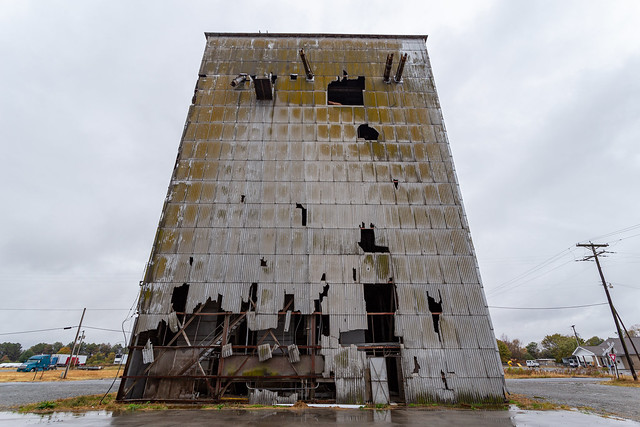
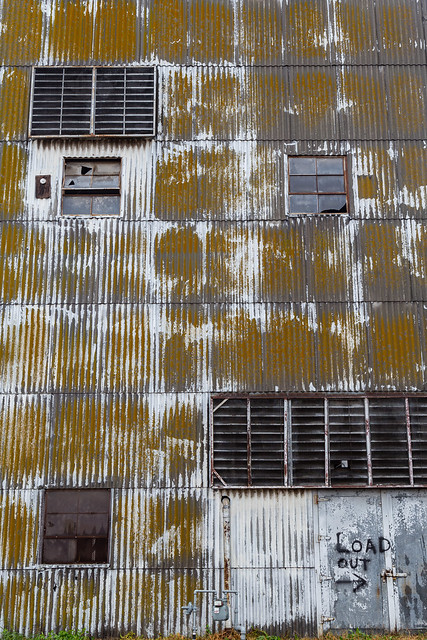
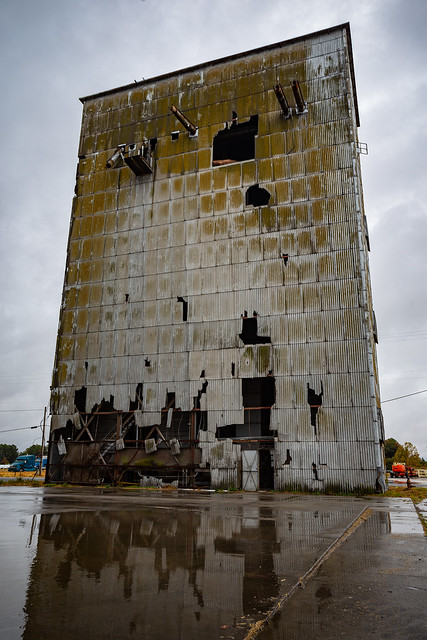
I needed to start head home, but I had to make one last stop at this old abandoned gas station.
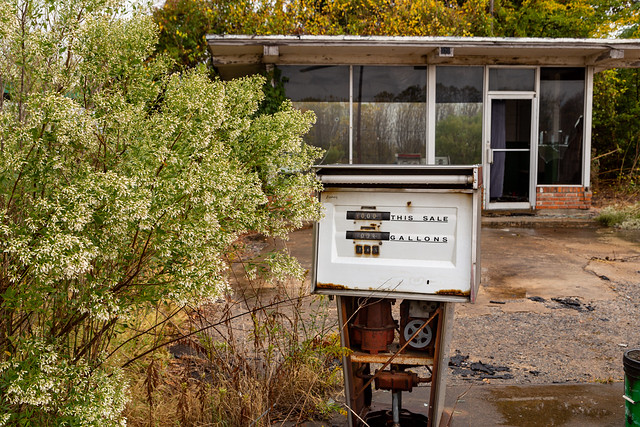

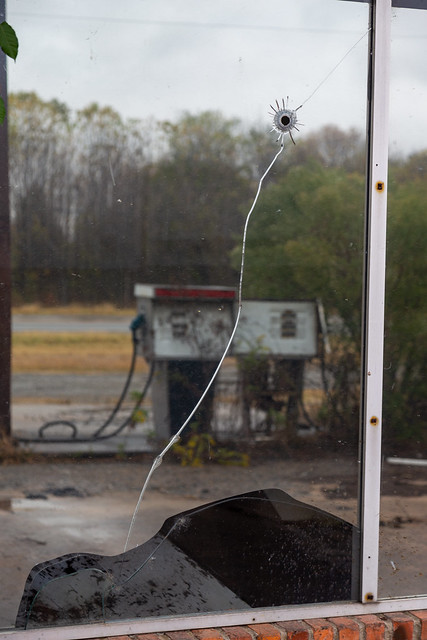


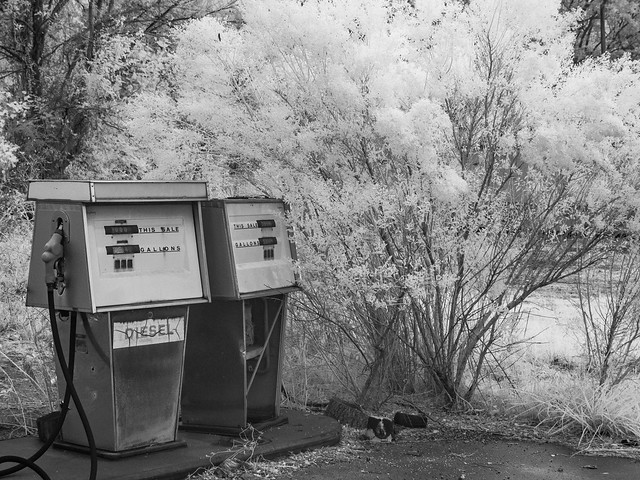
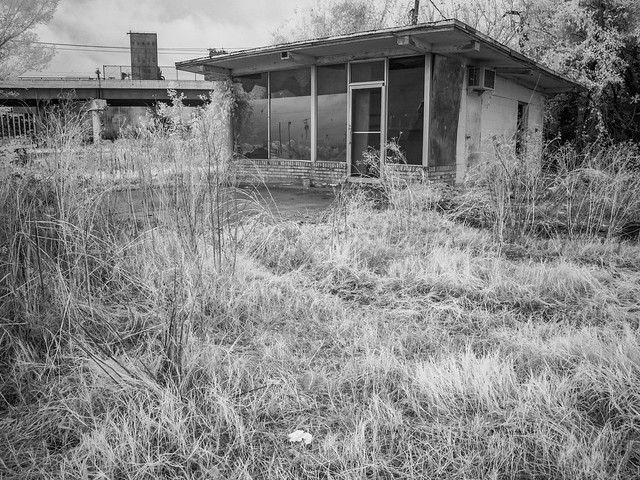
And after that I headed towards home. But instead of driving up to the freeway, I headed east on the backroads so I could find a few more things to get pictures of. Will post those pictures soon....



